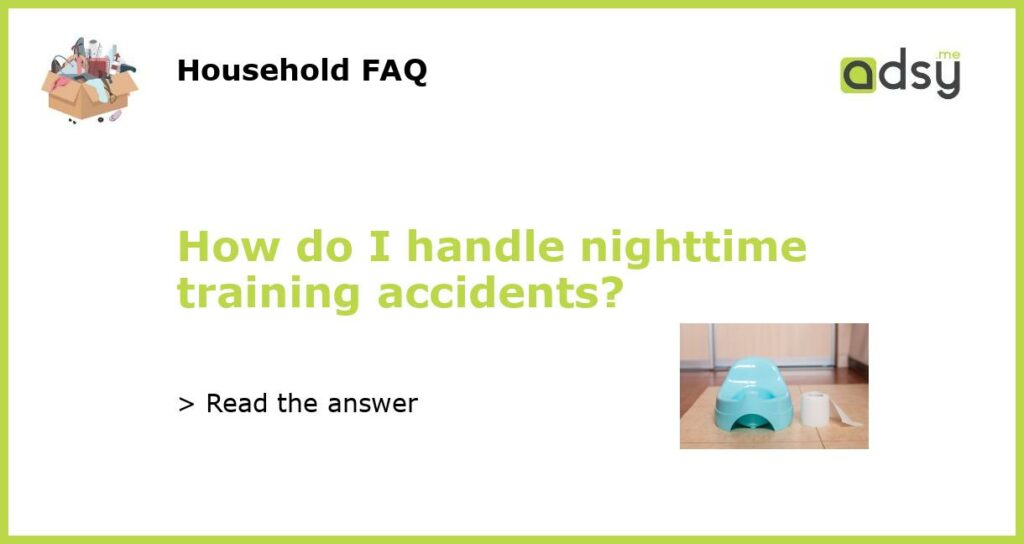Understanding Nighttime Training Accidents
Nighttime training accidents can be frustrating and challenging for parents and children alike. Whether you are in the midst of potty training or have an older child who occasionally experiences bedwetting, it’s important to handle these accidents with patience and understanding. In this article, we will explore some strategies to help you effectively handle nighttime training accidents.
Create a Bedtime Routine
Establishing a consistent bedtime routine can be beneficial in preventing nighttime accidents. Ensure that your child goes to the bathroom before getting into bed, and try to avoid giving them any fluids close to bedtime. Encourage them to empty their bladder completely before going to sleep.
Invest in Proper Bedding
Investing in waterproof mattress protectors and absorbent bed pads can make cleanup easier in the event of accidents. These protective covers can help prevent damage to the mattress and allow for quick clean-up. Additionally, consider using mattress protectors that are soft and comfortable to ensure a good night’s sleep for your child.
Encourage Open Communication
Encourage your child to communicate openly about any accidents they experience. Make them feel comfortable discussing their feelings and concerns with you. This open communication can help reduce anxiety and stress associated with accidents, and it can also provide valuable insights into any underlying issues that may be contributing to nighttime accidents, such as anxiety or medical conditions.
Implement a Reward System
Implementing a reward system can provide motivation for your child to stay dry throughout the night. Create a chart and offer small rewards for each night that they successfully stay dry. This positive reinforcement can help build confidence and encourage your child to take an active role in preventing nighttime accidents.
Consult with a Healthcare Professional
If nighttime accidents persist or become a cause for concern, it may be beneficial to consult with a healthcare professional. They can help determine if there are any underlying medical conditions contributing to the accidents and provide guidance on potential treatment options. They may also provide additional strategies and resources to help manage nighttime training accidents.






